Ed.D. Field-Based Capstone Project - to be completed during years 3 and 4
K12 EdD Capstone Guide
During the third and fourth years of study, students will complete an Ed.D. field-based capstone project under the supervision of a supervisory committee.
The Ed.D. Field-based Capstone Project provides EdD students with an opportunity to apply leadership and inquiry knowledge and skills to problems of practice or policy issues. The project is intended to develop and apply students’ academic and administrative skill set. The project should focus on a timely and significant problem or policy and make a meaningful contribution in the candidate’s school, district, college, university, or other relevant organizational setting.
The capstone project would result in a written document that meets both relevant academic standards as well as having utility to field organizations. Additionally, an oral presentation is required. The written document and oral presentation are reviewed and approved by the student’s supervisory committee. The capstone project is considered a “non-thesis” degree completion requirement and thus is not subject to the GraduateSchool dissertation requirements or thesis editor review process. Illustrative examples of appropriate EdD capstone projects include:
Policy Report or Inquiry Brief – an assessment of the effectiveness, equity, or efficiency of some organizational policy, program, or practice. For example, this brief could focus on a state-level policy, such as student retention, that has implications for state, district, or school practice. The policy brief would include a brief but tight review of literature on this policy issue to provide background to the local situation. The student would also conduct abbreviated descriptive research using local data to examine, for example, retention rates, retention trends, characteristics of students who have been retained, long term performance of retained students, and other effects of retention. These local descriptive data and findings would be compared with national data and research to permit the student to identify specific recommendations for state or district level policies.
Program or Policy Evaluation – an evaluation of an existing educational program or policy in terms of desired or intended goals. For example, a student could conduct an evaluation of a school or district program, such as “Success for All” or “Colors of Success.” The evaluation would include a review of literature on the specific program—its uses and effects. The student would also conduct a local study of the development, implementation, or impact of the program or a national study of the program in other locales. The final product would include a written report that consists of the literature review, description of evaluation study, findings and recommendations tied to the findings, and an oral report to a school board.
Implementation Project – a project in which a student facilitates the development and implementation of a new program, policy or organizational change to improve organizational effectiveness, equity, or efficiency– and documents this process in detail. The project could focus on the implementation of a specific program, such as a district extended learning program or English language learning program. The project would begin with a needs assessment and a literature review of the effects of similar programs. These would provide the background for the development and implementation of a program, which the student would document in terms of actors, actions, resources, etc. In addition to the report of the needs assessment, literature review, and description of the implementation, the student would develop a plan for evaluating the effectiveness of the program and implementing continuous improvement. The student would also actually evaluate the early stages of program implementation, including the processes
School or Organizational Improvement Plan (grounded in actual school or organizational data) – Using appropriate student, teacher, performance and/or other school data, the student would describe and analyze current school conditions in some detail and develop a school improvement plan to improve student or school outcomes, enhance the school climate, build a more collaborative culture, or other appropriate school improvement goal, including increasing effectiveness, equity, or efficiency of some organizational policy, program, or practice.
